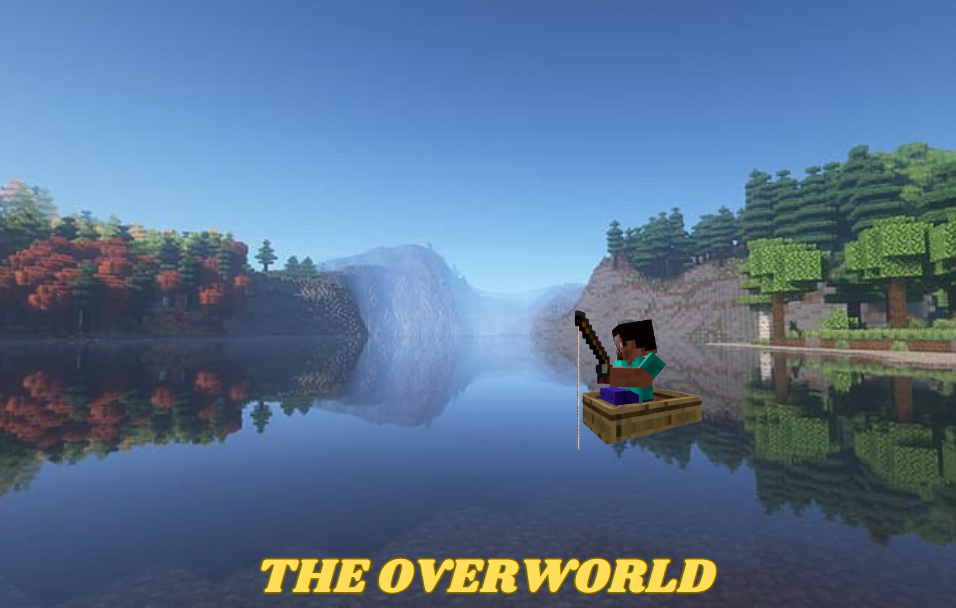On Ganiming we cover a lot of anime and gaming stuff, but we didn’t cover any technical background yet. In this post we will cover stuff about gaming, more specifically gaming on pc. We will start with some trivial stuff so if you are bored jump a bit forward into the article.
Types of gaming?
For playing video games there are quite a few options. Probably the cheapest and most accessible way is mobile gaming – as name suggests our device of choice is phone.
Second option is a console gaming, most known in this field are PS and Xbox. For this version of gaming, you need a console, a display – TV or a monitor and a controller. It’s a bit more expensive but more enjoyable, with better graphics and more detailed games.
Lastly the topic of today, a PC. This option varies the most. On one hand it can be the best possible experience but along it, the most expensive as well. For PC gaming, which means personal computer, you need a computer, a monitor, keyboard and a mouse / controller.

Gaming PC
Although all three options are better in one field or another, we will go a bit deeper into the PC. What are the main advantages compared to other options and how is it build.
Main advantages of PC are that it can be used for a lot more stuff besides games, you can program, response to emails, watch some series…, where to a console you are really limited. If you are going for the ultimate performance, you can achieve more fps (frames per second) and better graphics than on a console as well. You can usually get more games cheaper and from a lot of different offers.
But what is the downside?
If a game is made for a console (example PS5) it will work on it and you don’t have to check or worry about anything. On the computer that’s not the case. Every computer is different and build from a lot of different components, to check if our computer will run the game, we need to check specs.
System requirements (specs)
Before we buy the game, we can check system requirements of it. For example, you can go on Steam (one of platforms for buying games) and bellow the game there you will find minimum and recommended specs. Minimum means that you need to match those requirements for the game to run smoothly, usually on low graphic settings. And recommended specs for game to run smoothly on medium settings.
You can of course run a game even if you are a bit below the minimum, but it won’t be as pleasant.

Computer parts
We have heard a bit about specs already, they are basically our computer components, parts which make our PC whole. Below I will list the main computer components and what are they for.

Case
The computer case, also known as the chassis or tower, serves as an enclosure to house and protect internal components. It provides physical support, safeguards against dust and damage, and promotes efficient cooling. Additionally, it offers convenient access to ports and connectors for external devices, contributing to overall system organization and aesthetics.
Power supply
The power supply in a computer converts electrical energy from an outlet into usable power for the system. It provides stable and regulated voltages to components, ensuring their proper function. Essential for all computer operations, the power supply delivers the energy required for the CPU, GPU, and other hardware components to operate efficiently.
Motherboard
The motherboard serves as a central hub in a computer, connecting and enabling communication between essential components like the CPU, RAM, and storage devices. It distributes power, facilitates data exchange, and provides expansion slots for peripherals. Essentially, it is the main circuit board crucial for the computer’s functionality and connectivity.
CPU – Processor
The CPU (Central Processing Unit) is the computer’s primary processing component, often referred to as the “brain” of the system. It executes instructions from software, performing calculations and managing data. It controls and coordinates the operation of other hardware components, playing a central role in the computer’s overall functionality and performance.
GPU – Graphics
The GPU (Graphics Processing Unit) in a computer is designed to handle graphics-related tasks. It accelerates rendering of images, videos, and complex visual computations, enhancing overall graphical performance. GPUs are crucial for gaming, video editing, 3D rendering, and other graphics-intensive applications, offloading these tasks from the CPU to improve efficiency.
RAM – Temporal memory
RAM (Random Access Memory) in a computer is volatile memory that provides high-speed access to data the CPU is currently using or processing. It allows quick read and write operations, enabling efficient multitasking and faster data retrieval for running applications. RAM is temporary storage, clearing when the computer is powered off.
Storage
Storage in a computer is used to store and retrieve data permanently. It includes hard drives (HDDs) and / or solid-state drives (SSDs). The operating system, software applications, and user files are stored on storage devices. Unlike RAM, data remains even when the computer is powered off, ensuring long-term data preservation and access.
Cooling system
The devices can overheat, so we also need a good cooling system. The GPU and CPU should both have their own cooling, and we should have some more fans on the case itself to get the heat out of the case and fresh colder air in. We know of air- or water-cooling system but we won’t go as deep into it in this post.
Another advantage of a PC is that if you want to upgrade it, you can upgrade just a part of it and not everything at once. Like maybe your graphics card is a bit worse so you just upgrade that one, which as with console you can’t.
How can I get a gaming PC?
Well, you can buy a prebuild or build your own, but we still recommend you looking a bit deeper into the topic so you can choose best components to match or ask someone with experience.
Few years ago, it was a no brainer to go for a component buy and build it yourself, but now, due to all the inflation, crypto mining and material problems, its usually cheaper to buy a prebuild one already.
In both cases, think before you buy. What will you use PC for? What games do you want to play? How long do you want it to be viable for new games? Answer the questions so you know what you need to get. For gaming itself, you need a good processor and a good graphics card the most. How can I choose the best combination? Well try to get them on a similar level. If you have top tier one and shitty tier other one, it won’t do you much and the slower one will prevail. We have a term in the field for that, it’s called Bottleneck. Bottleneck means that one component limits the potential of others. There are a lot of different bottleneck calculators on web, to check if your processor and graphics card don’t bottleneck each other too much.

Usually 16GB of RAM is enough (for video editing or recording you may need a bit more, like 32GB – it goes up by factor 2x). And for storage we recommend SSD (a newer technology compared to HDD) which is faster, so your games will start faster and the people in the lobby waiting for you won’t ask who has the microwave or a potato PC.
Where can I get PC games?
There are many different online stores for games, probably most known of them all is Steam. You can also use Epic Games or some other one. Some games are on multiple stores and others are only available on one.
All of them offer amazing sales and discounts few times a year so watch out and wait for those. Biggest ones are for times around Christmas, New year and start of the summer.
If you have any questions or you would want another more detailed post about some specific topic you can tell us in the comments.







